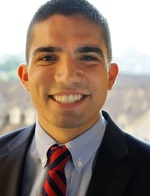The tragic Malaysia Airlines crash this week, and the news that at least six passengers of the 298 aboard were headed to Melbourne for the International AIDS Conference, has focused the world’s attention on the loss that people with HIV and AIDS around the world will suffer as a result. For some, the crash recalls the untimely death of Jonathan Mann and Mary Lou Clements-Mann aboard SwissAir 111 in 1998. The Manns warned early on of the coming global AIDS epidemic, and framed the spread of HIV as the product of social inequalities, rather than individual behaviors. Had the Manns lived, would global AIDS programs today look any different? Would they address the social conditions underlying the AIDS pandemic, in addition to offering condoms and ARVs? And how will the loss of Dr. Lange and those aboard MH17 shape the future course of the pandemic and our response to it, in ways that we can never know?
Dr. Simon Harris frames this question differently in a letter to The Guardian—why run the risk of gathering so many important minds together in one place, now that we have global communications technology? Can’t these meetings simply be held in the digital realm? Harris writes:
The overall loss of life in the Malaysia Airlines disaster (Report, 18 July) is the primary concern, but a separate issue is raised. Around 100 were scientists going to a conference in Australia. The number of conferences held worldwide is enormous, but is it not time to ask why such trips are necessary. The advent of large-screen TVs and rapid transmission of data and the spoken word mean it is no longer necessary to send thousands of people around the world at great expense often to the public purse (eg the universities) and at major environmental cost. People are already familiar with each other through Skype, telephone, email and the journals and, dare one say it, they are often an excuse to take the family on holiday. Now we have lost a very large number of people expert in the science of Aids. What cost will this be to those suffering from the disease?
For one, access to high-speed data is not the same everywhere; retooling international conferences in such a fashion could very well exclude those on the other side of the “digital divide.” But perhaps more importantly, international AIDS conferences like the one in Melbourne have given AIDS activists from around the world a space in which to meet, exchange ideas, and learn about one another’s struggles. Karen Timour wrote about her experience at the 1996 International AIDS Conference in Vancouver for thebody.com. She described the three-day “Community Forum” for people living with AIDS held before the conference in glowing terms: “The dorm bubbled with intense conversations, disputes and shared humor — living there was like being in the midst of a huge, HIV-positive United Nations.”
But these conferences have not only been uplifting personal experiences for AIDS activists—they helped enlarge the scope of AIDS activism, giving rise to the movement for treatment access in the developing world during the late 1990s and early 2000s. ACT UP Philadelphia was at the forefront of that fight within the United States, as they protested Gore and Bush during the 2000 presidential campaign, demanding that the U.S. government allow countries in the global South to produce cheaper generic versions of HIV drugs, or to buy generics on the global market. Speaking to Salon.com in 2001, Kate Krauss of ACT UP Philadelphia described the “searing experience” of meeting other activists who were dying for lack of treatment. Similarly, in an interview for this project, Waheedah Shabazz-El of ACT UP Philadelphia described her own experience meeting counterparts from the developing world, and the particular struggles they face:
I met a lady from Kenya–I was in Toronto at an International AIDS Conference and I met a lady from Kenya, and she was a village nurse. She went to school at the University of Kenya, but she worked in the small villages, and she gave out medication. And she asked me, “How often do you see a doctor? What kind of access do you have to your doctor?” And I was embarrassed to tell her how much access I have to my doctor. I know my doctor. I have my doctor’s cell phone number. I can see my doctor in the elevator, and if I need a prescription, before we get to the bottom floor, I’ll have the prescription. I have great access to a doctor, and I didn’t want to tell her that, because I knew where this was going. And then she said to me, “I go to the village, and I say to the people, ‘You must take these ARVs because they will save your life.’” She said to me, “What do I do when the people point to their bellies and say that their bellies are empty? What do I do?” She said that they share their medicine because they have to pay. And that they share their medicine, families share, because you have families that are infected, and they share their medicines amongst the family so nobody gets well. [1]
Doctors and scientists are indispensable to the fight against AIDS—no one could argue to the contrary. But international AIDS conferences aren’t only about the researchers. They’re also vital spaces for people living with HIV and AIDS to meet, learn from each other, and become advocates for their counterparts around the world when they go back to their home countries. AIDS is a global phenomenon, and these conferences have been crucial to helping shape the activist consciousness that engendered a global response.
[1] Waheedah Shabazz-El, interview with Dan Royles, June 5, 2012, Philadelphia, PA.

